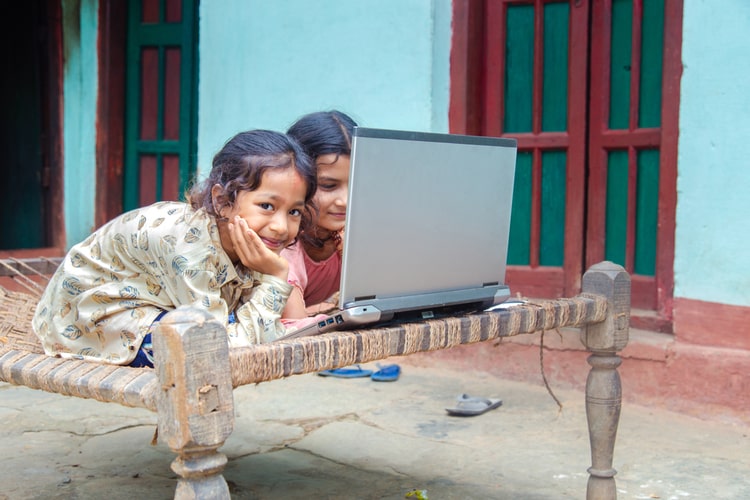
Ever since the inception of the Coronavirus-led pandemic in early 2020, India’s education sector has taken a massive hit, amongst other sectors. While urban students were able to attend schools and colleges through digital means, students in the rural areas have been sitting ducks in these past two years. Citing this issue, India’s Finance Minister Nirmala Sitharaman today announced to set up a government-backed digital university in India to deliver world-class education to rural areas of India.
India to Set Up a Digital University
In the Union Budget 2022 session, FM Nirmala Sitharaman stated that many students in the rural sectors of India have stopped receiving formal education due to the pandemic. So, to promote digital learning and to deliver world-class education to these students, Sitharaman announced the setting up of a digital university in India.
A recent survey of nearly 1,400 school-going children revealed that only 8% of the students in rural areas have been able to attend schools online, while a whopping 37% of them have already stopped receiving formal education. Hence, setting up a digital university in India could drastically improve the education status in rural areas.
According to Sitharaman, the digital university will impart world-class education in all regional languages. Furthermore, she stated that the digital university will work with other central universities for the required infrastructure and training, and would be able to deliver universal education with a personalized experience for students. The government will also set up 750 virtual labs and 75 skilling e-labs focused on simulated learning.
“A Digital University will be established to provide access to students across the country for world-class quality universal education with personalised learning experience at their doorsteps. This will be made available in different Indian languages and ICT formats,” said the Finance Minister during her speech.
Other than this, the Finance Minister also announced to expand the “One Class, One TV Channel” initiative under the PM e-Vidya scheme from 12 to 200 channels in the country. “This will enable all states to provide supplementary education in regional languages for classes 1 to 12,” the FM further added.
Chip-Based e-Passports, Battery Swapping Policy Announced in India
Other than announcing digital education initiatives, Sitharaman also said that Indian citizens will soon be able to avail microchip-based e-passports in the country. These new electronic passports will feature a microchip, encoded with security-related data. The e-passports will be able to digitally store various ID-related data of a citizen such as their biometric information, name, address, etc.
The authorities say that the advanced security features of the e-passport will prevent unauthorized access to data through Radio-Frequency Identification (RFID). The e-passports will be manufactured at India Security Press, Nashik, and will be in line with the standards of the International Civil Aviation Organization (ICAO).
Other than this, the Budget 2022 session also saw the announcement of a Battery Swapping Policy and interoperability standards for setting up charging stations for electric vehicles in India. With this initiative, the government will encourage the private sector to develop sustainable and innovative business models for “Battery or Energy as a Service” to help India transition to electric vehicles.
DESH-Stack ePortal, Drone Shakti Initiative Announced
During her Budget 2022 speech, Sitharaman also announced two new initiatives to help citizens develop and improve their skills and promote drone-based startups in India to boost drone-as-a-service applications Amongst these, the DESH-Stack ePortal aims to provide an online portal that can empower citizens to skill, upskill, or reskill through online programs and training. It will provide various API-based trusted skill credentials, payment, and discovery layers to find relevant jobs and business opportunities.
The Drone Shakti initiative, on the other hand, will promote startups that focus on developing drone technology. With this, the government aims to bring various drone-as-a-service (DrAAS) applications to the country. The required courses for skilling in the particular sector will also be started in different ITIs and in all the states of the country.
With these efforts, India is aiming to deliver high-quality education to students in rural areas to help them complete their formal education, empower citizens through online programs, digitize the passport infrastructure, and boost drone startups. However, it remains to be seen how or when these efforts go into effect in the country.
Thanks a lot for the post